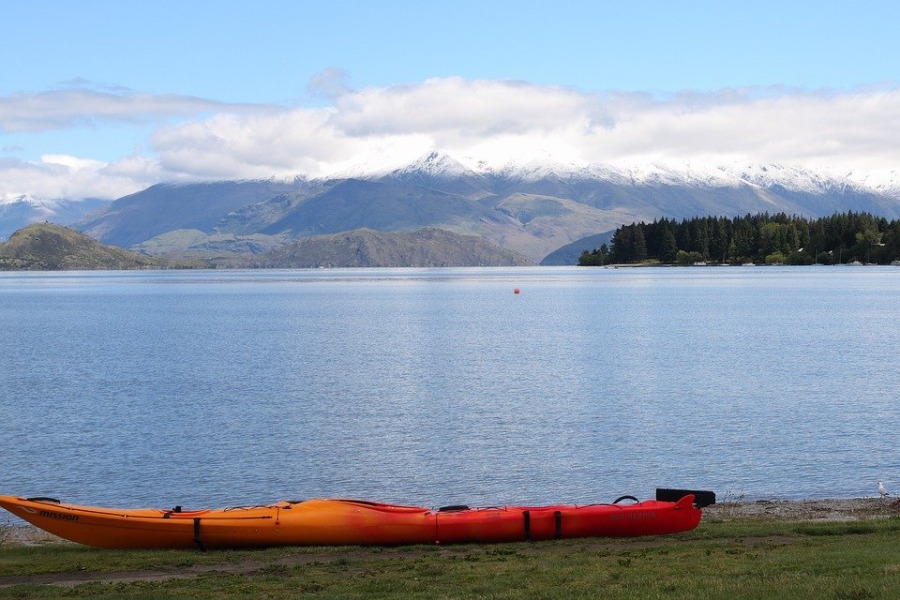Wanaka
Wanaka (Māori: Wānaka), once called Pembroke, is a popular ski and summer resort town in the Otago region of
the South Island of New Zealand. At the southern end of Lake Wānaka, it is at the start of the Clutha River
/ Mata-Au and is the gateway to Mount Aspiring National Park.
Wanaka is primarily a resort town with both summer and winter seasons. Its economy is based on the many
outdoor opportunities this offers.
Historically, Māori visited the Wanaka area to hunt and fish in summer, or on their way to seek pounamu
(greenstone) on the West Coast. Ngāi Tahu abandoned their seasonal camps after a raid by a North Island war
party in 1836.
The current town was founded during the gold rush of the 19th century. Along with the rest of the
Queenstown-Lakes District, Wanaka is growing rapidly, with the population increasing by 50% between 2005 and
2015.
(Quelle: Wikipedia)
Lake Wanaka

Lake Wānaka (also spelled Lake Wanaka) is New Zealand's fourth-largest lake. In the Otago region, it is 278
meters above sea level, covers 192 km2 (74 sq mi), and is more than 300 m (980 ft) deep.
"Wānaka" is the South Island dialect pronunciation of wānanga, which means "the lore of the tohunga or
priest" or a place of learning.
The town near the foot of the lake is named Wanaka. A Kāti Māmoe settlement at the site of the modern
township was Para karehu.
(Quelle: Wikipedia)
